The developer ecosystem is a constantly evolving landscape, where new technologies emerge and old ones fade.
In 2023, JetBrains, a renowned software development company, released its comprehensive report on this dynamic ecosystem.
Drawing from a survey of over 26,000 developers globally, the report offers valuable insights into the programming languages, tools, and trends shaping the industry.
JavaScript Reigns but Faces Declining Usage
In 2023, JavaScript remains the most used programming language, claimed by 61% of developers.
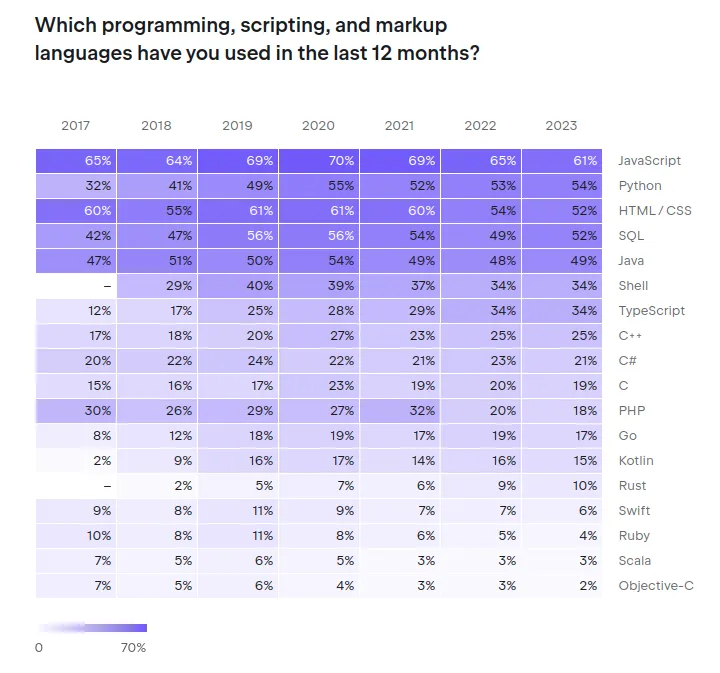
However, its dominance is slowly diminishing (-9% in 3 years), indicating a growing interest in other languages.
This shift suggests that JavaScript developers are more open to exploring new programming languages.
Rust: A Rising Star
Rust has reached a peak in popularity, challenging C++ with its rigorous safety and memory management features.
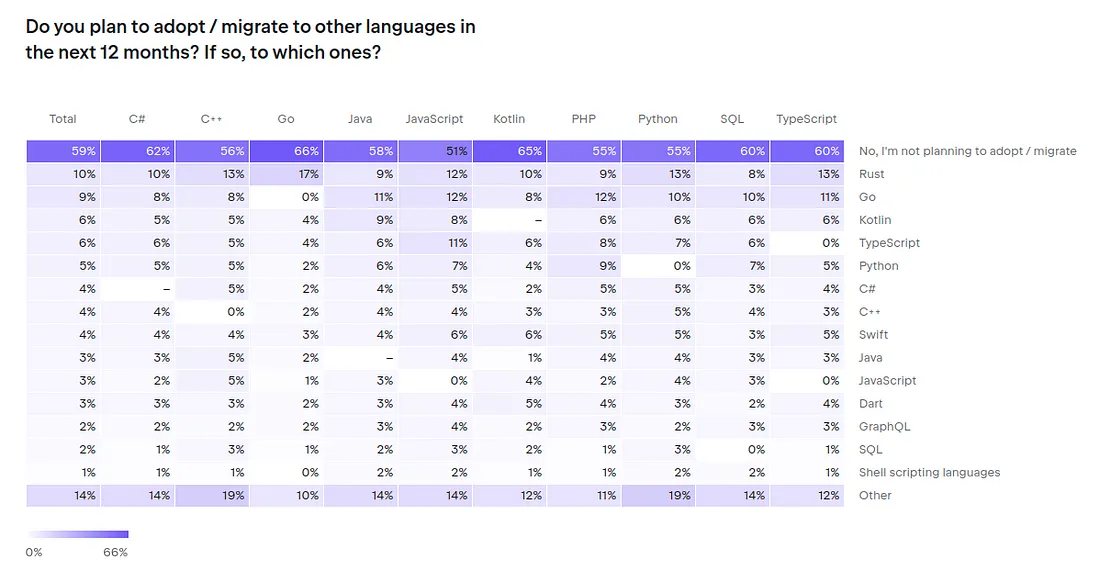
A notable portion of Go (17%) users are considering switching to Rust, highlighting its growing appeal.
Objective-C: Nearing Retirement
Objective-C, once a pillar for macOS and iOS development, has seen a significant decline.
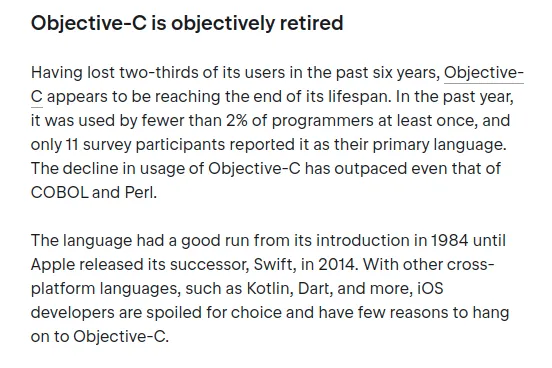
The rise of modern, more accessible languages like Swift and Kotlin has overshadowed Objective-C, pointing to its eventual phasing out.
Focus on Salary
In terms of compensation, developers specializing in Scala, Go, and Kotlin are among the highest earners in 2023.
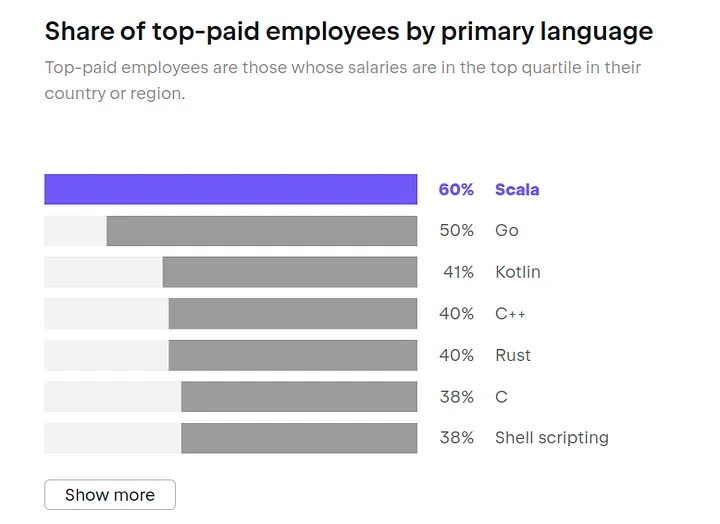
This trend reflects the market demand for these skills.
Gender Disparity in Development
The gender gap remains a significant issue in the developer community, with women representing only a small fraction of the workforce.
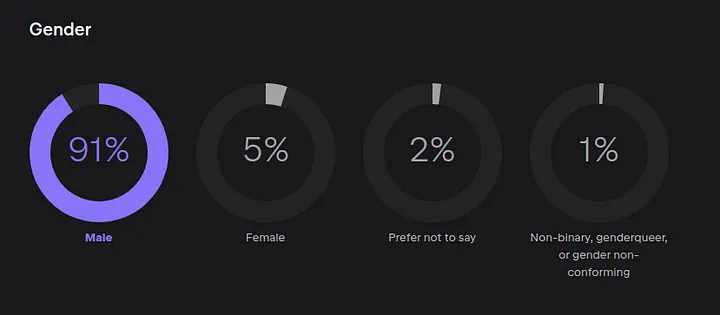
However, regions like South Korea are showing promising trends towards gender balance, thanks to long-term strategic policies.
AI's Role in Development
With AI technologies like ChatGPT and GitHub Copilot gaining traction, 77% of developers now use AI tools for coding assistance.
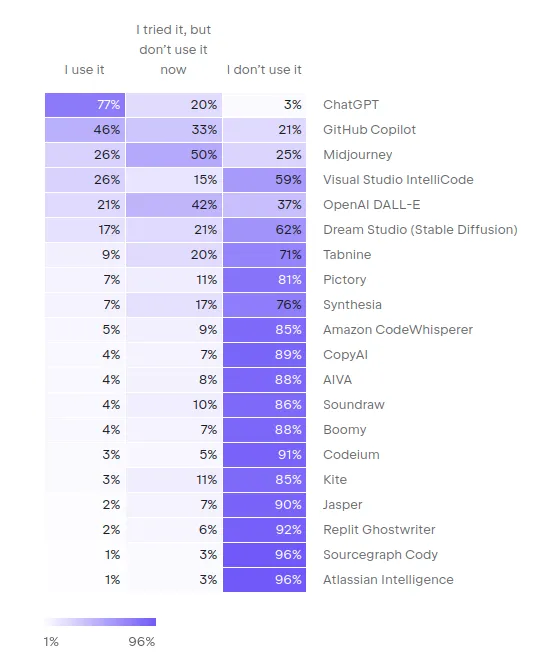
However, there are concerns about security and ethics in AI, reflecting a cautious approach towards these emerging technologies.
Developer Lifestyle: Mental Health in Focus
The report also sheds light on the lifestyle of developers, particularly concerning mental health.
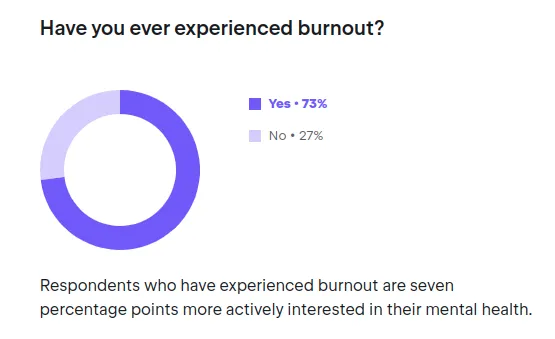
Developers who have experienced burnout are now more mindful of their mental well-being, highlighting the importance of work-life balance in the tech industry.
Education and Continuous Learning
The survey reveals that continuous learning is a core part of the developer's journey.

Most developers learn through universities and MOOCs, with Python, JavaScript, and Java being the most popular languages for learning.
Open Source and Remote Development
Participation in open-source projects remains high, with 41% of developers contributing to these projects.
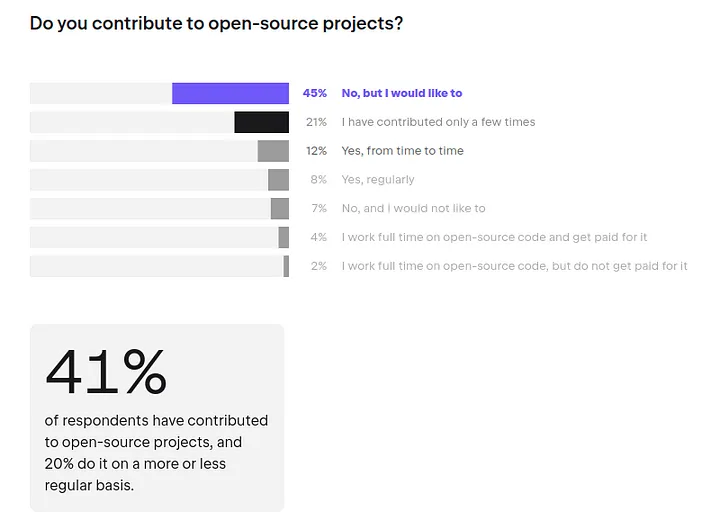
Remote and collaborative development continues to be a significant trend, further accelerated by the pandemic.
Secure Coding: A Priority in Today's Development Ecosystem
A notable 62% of developers now incorporate the Secure Software Development Life Cycle (SSDLC) into their workflows, emphasizing a proactive stance on security.
Despite the array of tools available, 58% of developers report not using any integrated security solutions.
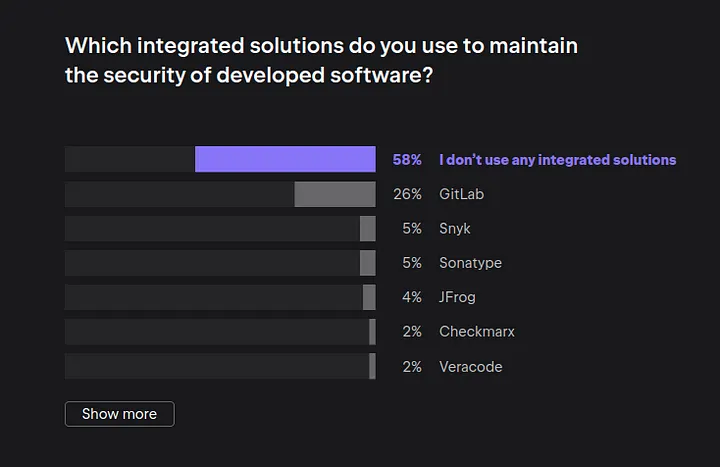
However, platforms like GitLab (26%) provide integrated security features, which developers are beginning to adopt for more robust security practices.
Other tools, such as Snyk, Sonatype, JFrog, Checkmarx, and Veracode, though used less frequently, highlight the diverse ecosystem of security solutions available to developers.
Conclusion: A Dynamic and Diverse Ecosystem
The JetBrains 2023 report paints a picture of a dynamic and diverse developer ecosystem.
As technologies evolve, developers adapt, continually learning and exploring new horizons.
This ecosystem is not just about coding; it's about the people, their well-being, and their continuous quest for knowledge and improvement.
As we step further into 2024 and beyond, these insights from JetBrains offer valuable guidance for developers and industry stakeholders alike.
For more detailed insights and data, refer to the full report by JetBrains: JetBrains Developer Ecosystem Report 2023.
